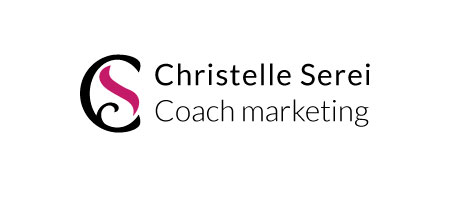
05 Sep 5 Mistakes Entrepreneurs Make in Writing for Their Social Media
I always emphasize the crucial importance of crafting your posts, both for your readers’ attention span and for optimizing SEO. However, it’s essential to note that writing in any way won’t get you anywhere!
Let’s break down the 5 common mistakes made by entrepreneurs when they write content for their social media!
OVERUSING ARTIFICIAL INTELLIGENCE TO COMPOSE YOUR CONTENT
Even though Chat GPT can offer assistance, let’s not forget that it remains a robot after all!
Excessively using artificial intelligence in creating your content can be tempting. Of course, Chat GPT is a valuable assistant, capable of providing suggestions and ideas. However, it’s essential to keep in mind that, despite its skills, it fundamentally remains a robot programmed to generate text. This means it may lack the subtlety and nuance of genuine human creation. Adding your personal touch as an entrepreneur is what will establish a real connection with your audience.
ADOPTING A TOO LITERARY STYLE, DEVOID OF AUTHENTICITY!
Keep in mind that you’re not writing for a high-end magazine but for relaxed individuals glued to their phones.
Opting for a style that’s too literary may seem like a sophisticated idea at first, but be careful not to lose your authenticity along the way because it’s this authenticity that makes your messages truly impactful! When you get lost in complicated sentences and fancy words, there’s a risk that your message gets lost in complexity. Your audience, consisting of people seeking honest and straightforward interactions, might feel a bit lost. Writing for social media is primarily about creating a direct and authentic dialogue. A too literary style can make this dialogue less natural and more distant.
On the other hand, authentic language acts as a link between you and your followers. It reflects your company’s unique identity while creating an emotional connection with your audience. Your words become a reflection of your values, beliefs, and perspectives. They convey a sense of closeness, as if you were individually conversing with each member of your audience.
NEGLECTING PROPER KEYWORD INTEGRATION WITHIN YOUR CONTENT
Make it easier for your social media platforms by helping them identify and associate the content you present. Strategically including keywords enhances your visibility.
Ignoring the importance of carefully integrating relevant keywords into your content could deprive your posts of the visibility they deserve. When you consciously omit relevant keywords, you hinder search engines and social media platform algorithms from understanding the subject of your content. Keywords play a crucial role in guiding these systems to classify and display your content to interested users.
Imagine your keywords as directional tags in a vast digital ocean. They help steer traffic to your posts. If you don’t incorporate them wisely, your messages might get lost in the constant flow of online information.
However, keyword integration shouldn’t be a mechanical and forced endeavor. Instead, it’s essential to incorporate them organically, in harmony with the tone and context of your content. Well-chosen keywords are not just labels but elements that strengthen the meaning and relevance of what you share.
In short, considering keywords when writing your content is a smart strategy to maximize the visibility of your posts. That said, it’s crucial to strike a subtle balance between keyword integration and the fluency of your message to provide an enjoyable and informative experience to your readers.
COPY-PASTING CONTENT FROM YOUR SUPPLIERS OR, WORSE, A COMPETITOR!
Plagiarism… it’s plagiarism! And your personality won’t shine through!
Replicating content entirely from your suppliers or, even worse, your competitors might seem tempting at first. However, this approach only tarnishes the uniqueness of your brand and dilutes your distinctive voice. Plagiarism is simply unacceptable. By unabashedly borrowing words and ideas from others, you deprive your audience of the opportunity to discover your authentic perspective. Your unique personality, which should be the driving force of your communication, risks being completely overshadowed.
Beyond the ethical issue, plagiarism also damages your credibility and the trust your customers and followers have in you. People are increasingly adept at spotting blatant similarities or uncredited borrowings. Instead of standing out, you might end up blending into the mass of generic content.
Instead, seek inspiration from your suppliers and competitors, but transform it into something personal and original. Integrate these ideas into your own perspective, adapting them to your tone, values, and audience. This is how you’ll create content that faithfully reflects who you are and resonates with your followers.
In essence, resist the temptation of copy-pasting. Opt for the path of authenticity and creativity because that’s where the real power of your brand lies.
WRITING GENERIC CONTENT… WITHOUT YOUR VOICE!
Forget the formal style, complex descriptions; that’s suitable for a medicine bottle… but your customers want elements in your words!
Producing generic content devoid of your personality is a mistake to avoid. Your distinctive voice is what makes your brand memorable and captures your audience’s attention. When you opt for an impersonal and stereotypical style, you miss the opportunity to connect with your audience meaningfully. People are drawn to authenticity and sincerity, and it’s your own voice that can offer them this experience.
Let’s imagine your content is a book, and your voice is the narrator. Generic content without your voice would be like a story read in a monotonous manner, devoid of any emotion or interest. On the other hand, when your personal voice shines through your words, the story comes to life and evokes emotions in your readers.
Instead of sticking to a cold and distant language, dare to inject your personality into every sentence. Use expressions that reflect your natural communication style. This may include anecdotes, metaphors, or even a touch of humor if it suits your tone.
Remember that you’re not writing for a technical manual or a medical pamphlet. You’re writing for individuals who want to feel a connection with your brand. Offer them a unique experience by sharing information and ideas in your own words. This is how you’ll build a strong bond with your audience and leave a lasting impression.


